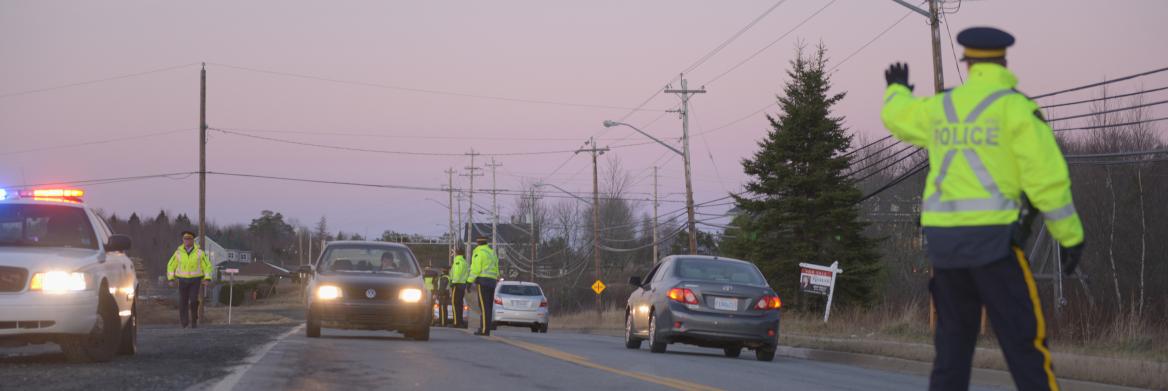The Halifax District RCMP recently brought their use of data for crime prevention on the road — or, to the road, that is.
The detachment, which is responsible for more than 90 per cent of the Halifax Regional Municipality, has been using what's called a comstat process that compiles data for specific sets of crimes by 'x-y' co-ordinates to track and predict problem areas and times since 2010.
Compiled by crime analyst Sheila Serfas, reports are delivered every three weeks at their comstat meeting.
"It really fits into our whole crime reduction strategy," says Serfas. "We've had very good success in reducing property crimes and some crimes against persons following this process."
So they decided to expand the tracked crimes to include road safety last year. It seemed like a natural progression to C/Supt. Roland Wells, the OIC of the Halifax District detachment.
"When you get into looking at the costs of policing and the costs of the judicial system as a whole, I think there's an onus on us to make sure we're making the best use of our limited resources," says Wells. "Every call for service reduced, in terms of collisions, saves taxpayers an incredible amount of money."
The reports give members the exact times and places that are hotspots for certain violations and dangerous driving behaviours. With the comstat reports available, Wells says he expects them to use that intelligence to get ahead of crime.
The feedback Serfas has received so far has been positive — last fiscal year, they'd already seen a nine per cent reduction in overall collisions.
"The work I do is used to help drive operations," says Serfas. "And we come back to review the data to determine if it worked and if we're hitting the right spots."
Wells adds that just having a police presence at these points of concern can help prevent drivers from speeding or violating cellphone laws, reducing their need to hand out tickets — and hopefully positively influence drivers in the long run.
"The best thing we can do is understand the problem and be strategic about how we respond," says Wells. "Analysts are essential, you have to get a grip on what it is you're doing to use our limited resources to best impact some of these social behaviours that lead to tragedies."
